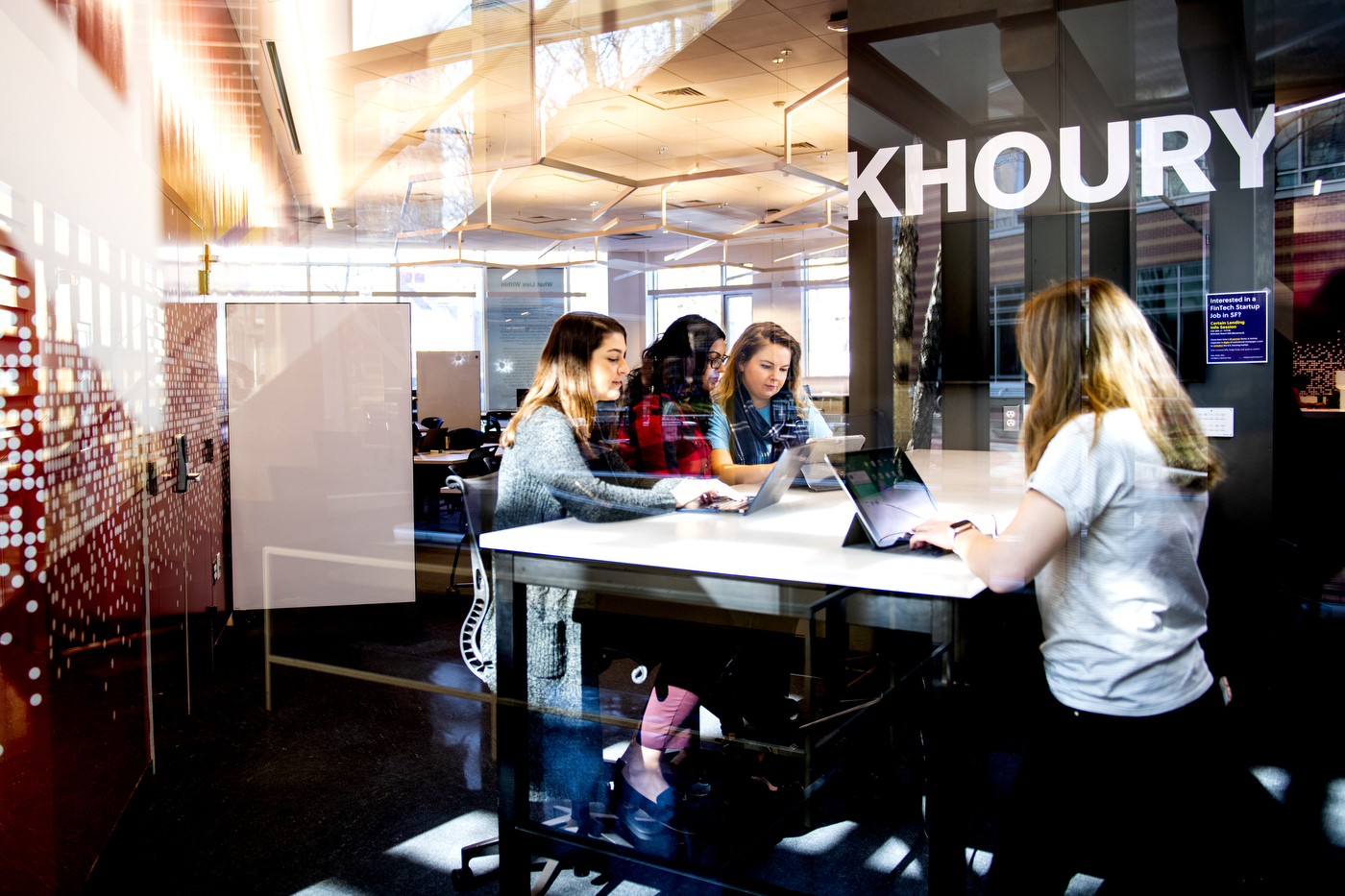Northeastern awards grants to 6 universities to help increase the number of women in computer sciences

Northeastern University’s Center for Inclusive Computing has awarded the first round of grant funding to six higher education institutions, in order to help recruit and retain more women in their computer science programs and boost the representation of women in the field as a whole.
The six universities—Columbia University and Barnard College, Colorado State University, the New Jersey Institute of Technology, Rutgers University, and the University of Minnesota—were selected by Northeastern through a rigorous vetting process and received grants that range from $500,000 to $2 million. The institutions will use the funding and work with Northeastern’s Center for Inclusive Computing to implement evidence-based strategies to address the gender gap at their institutions in the field of computing.
Northeastern’s Center for Inclusive Computing will provide technical advisors to work with the faculty and staff at the grantee institutions to implement demonstrated best practices, including redesigning introductory computing courses. The technical advisors are senior faculty from Khoury College and other institutions who have had first-hand experience with the practices that help attract and retain women in their computer science programs. The technical advisors will consult with faculty at the six institutions, and help them track their progress.


“We are honored to work with computer science departments across the country to change the representation of women in tech,” said Carla Brodley, who is the dean of the Khoury College of Computer Sciences at Northeastern, and who oversees the Center for Inclusive Computing as its founding executive director.
“All of us face unique challenges and are starting at different places, but I am encouraged—and amazed—by the commitment and leadership of the faculty we have met with,” Brodley said.
Northeastern’s Center for Inclusive Computing was established in 2019 with a grant from Pivotal Ventures, an investment and incubation company created by Melinda Gates. Over the course of the next six years, the Center will provide funding and support to not-for-profit universities that have 200 or more computing graduates annually.
Strategies for moving undergraduate computing programs toward a critical mass of enrollment by women depend on the context and culture of that university. But there are well-known common approaches, such as reshaping the required introductory courses for computer science majors.
Introductory courses can be designed to appeal to students who do not have prior experience in computing. Under the direction of well-trained faculty and teaching assistants, these courses can be taught in a way that demonstrates the breadth of the field and creative ways in which computing can benefit society. Research has shown that if educators make course content more relevant and creative, and by encouraging everyone, regardless of background, to try computing, more women will continue in the field. Students should feel welcome and be able to try the first course without any prior programming experience.
So, much of the work facilitated by the grants from Northeastern’s Center for Inclusive Computing will involve redesigning curriculum and helping instructors create an inclusive, welcoming community.
The Center espouses best practices that have been shown to increase enrollment and retention of women in computing, and have been identified and distilled from hundreds of interviews with experts, peer-reviewed reports, and research from conferences and journals. They include offering on-ramps for beginners, creating a sense of belonging from faculty, and cultivating a community of supportive peers.
Those measures are already underway at Northeastern. Under Brodley’s leadership, the Khoury College of Computer Sciences has increased the percentage of incoming undergraduate students who are women from 21 to 30 percent in five years. Khoury offers 36+ majors that pair computer science with subjects outside the field, such as English, biology, or business administration—in these combined majors, women comprise 34 percent. In addition, she has expanded Align, a master’s program in computer science designed specifically for students who don’t have a technical or computing background. Align has grown from 11 students in 2013 to more than 1,000 students in Spring of 2020; when 55 percent of new students were women.
“We’re excited to be able to affect national change,” Brodley said. “One of the reasons I became a dean is to make the field of computer science look more like the world as it is.”
Colleges and universities interested in applying to work with the Center can learn more at the Center’s website.
For media inquiries, please contact Shannon Nargi at s.nargi@northeastern.edu or 617-373-5718.





